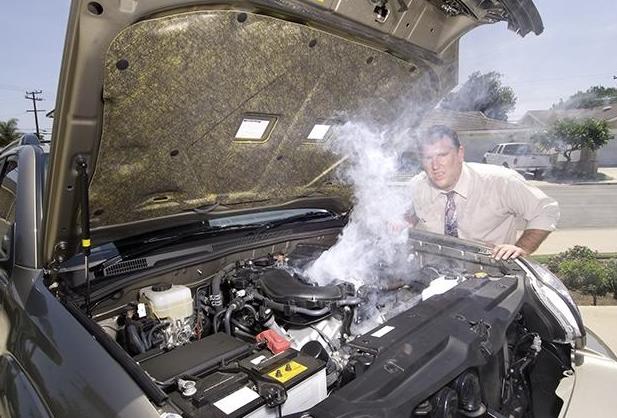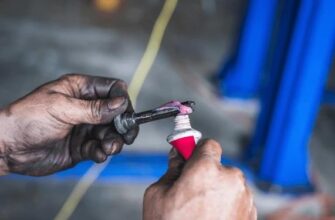Experiencing an overheating engine can be stressful, but there are temporary fixes you can use in an emergency to cool things down and get home safely. This guide will walk through straightforward solutions anyone can implement to stop overheating quickly.

What Causes a Car to Overheat?
- Low coolant levels
- Radiator leaks
- Faulty water pump/thermostat
- Debris blocking airflow
- Blown head gasket
How Can You Tell if Your Car is About to Overheat?
- Temperature gauge in the red zone
- Lack of cabin heat
- Steam from under hood
- Sweet smell from coolant
Quick Fixes for an Overheating Engine
Turn on the heat full blast
Opening the heater core allows hot coolant to flow through and dumps heat. This buys you time to get somewhere safe.
Top off the coolant
Adding coolant to the overflow reservoir helps counteract any leaks and raises coolant levels to allow better heat transfer.
Blast the AC
Running the AC puts additional load on the engine which can reduce temperature slightly.
Replace blown fuses
Blown fuses related to the cooling fan can allow overheating. Replace any suspicious fuses.
Clean debris from grilles
Remove bugs, leaves, plastic bags, etc. blocking airflow to the radiator and condenser.
Resecure loose hoses
Tighten any loose hoses allowing coolant to escape the system. Consider duct tape if hose is damaged.
Add an emergency coolant additive
Coolant additives such as Water Wetter can provide short term cooling.
Turn off air recirculation
Allows fresh outside air to flow through and aid cooling.
How to Prevent Overheating in an Emergency
Park in shade
Get the car into shade or indoors to reduce heating from the sun, if you can safely do so.
Drive slower
Going slower creates less engine heat and enhances air flow for cooling.
Take luggage off roof rack
Remove unneeded weight and wind resistance.
Turn off AC/Defrost
Eliminate extra heat sources pulling power from engine.
Crank windows at low speeds
Only crack windows at slow speeds for airflow.
Lift hood at stops
Allows more heat to radiate from hot engine components.
Stop to let engine cool
If temperature creeps up, safely pull over and let engine cool before proceeding.
When to Call for a Tow vs Temporary Fixes
- Thick steam from under hood
- Overpowering sweet coolant smell
- Dashboard temperature light on
- Guage pinned in red zone
- Strange engine noises
Conclusion: Stay Safe if Your Car Overheats
- Don’t remove radiator cap when overheated
- Beware of scalding steam and hot coolant
- Pull over and turn off engine if temperature continues rising
- Call for help if you cannot safely drive it further
- Serious overheating can lead to major engine damage
Keeping supplies on hand like spare coolant, duct tape, and a small toolkit can help you implement temporary fixes if your engine starts to overheat. Stay safe, act quickly, and get professional repairs done as soon as possible.








